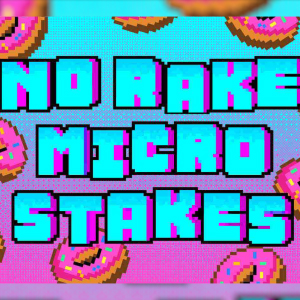How to Send Your Opponents on a Tilt
9 years ago
17 Aug
(Photo: Thegreatgrind.com)
Tilt is the one thing every poker player fears and tries to avoid at all costs. We read entire books and articles about poker mindset, we try to incorporate different techniques like meditation or mental warm-up routines, some of the more dedicated and adventurous players even try things like hypnosis. We do all of those things for a good reason, poker is a game of small edges and going on tilt is a fast lane to losing the edge you might have at the table. In light of that, it might actually be profitable to try to induce the state of tilt in our opponents. In this article, we're going to discuss the potential risks and benefits of that approach and give you some tips on how to correctly execute it.

Different Approaches to Tilting Your Opponents
First things first, it's entirely possible to play poker effectively without trying to meddle with the mental state of our opponents. There are thousands and thousands of successful, silent (and sometimes nameless) pro players who made small fortunes without ever bothering anyone. That being said, there are also the rare examples of players like Tony G, Mike Matusow, or Jamie Gold who are on the other side of the spectrum, they enjoy the tension and have the uncanny ability to put entire tables on tilt in a matter of few orbits.
Then there are players who, don't really talk much but can put their opponents on tilt via the use of specific betting patterns, sometimes combined with a stern, intimidating table image. Examples of that would be Tom Dwan in the fifth season of High Stakes Poker when he was running the table and putting everyone to the test, or Phil Ivey who is able to intimidate opponents with his commanding table presence and cause them to play much worse than they would otherwise. The latter examples show that it's entirely possible to tilt your opponents via the use of betting patterns alone which can be done online and isn't very controversial even if we take morality into account. It's no more immoral than ruining someone's day by beating him one on one at a football field with panna technique or by getting strike after strike during a bowling match.
Then there's the issue of tilting someone with an aggressive use of language. This is a lot more tricky and can even get you punished at a live table or cause the online poker room moderators to revoke your chat privileges. What's even worse is that it can affect your mental state and cause you to play worse as a result. This approach is much more challenging to pull-off, much more problematic from the moral standpoint, and unless you're another incarnation of Jamie Gold, you might want to give it a rest.

Tilting Opponents Using Betting Patterns
Utilize position. There are few things more frustrating in poker than playing out of position. This is true even for seasoned players and doubly true for those less experienced. In some games, like PLO, it's impossible to make money out of position, in others, like no-limit hold'em, it's extremely hard to achieve a positive result. Take full advantage of that fact and put pressure on your opponents every time you have the position on them. Try to identify less experienced, recreational players and put their comparatively weak and wide ranges to the test by bluffing the 'fit or fold' ones and value betting very thinly against the loose-passive ones. Cbet and 3bet in position with a high frequency. Make yourself a nightmare to play against.
Don't let your opponents play their favorite game. If they like to limp preflop, isolate them often by raising. If they like to see a lot of community cards cbet them mercilessly. If they don't like to barrel float their cbets or if they open too many hands preflop, 3bet them light. The list goes on. Try to identify deficiencies in your opponent's strategies and exploit them until they are forced to adjust which will be very frustrating for the less experienced players who rely heavily on pre-learned automatic strategies and autopilot approach.
Know them better than they know themselves. One of the interesting ways of putting your opponents on tilt is paying attention to their sizing and timing tells. Those are often automatic (meaning that players don't even realize they have sizing or timing tells) and therefore it can give you the illusion of being a superuser who can see the cards of your opponents. While you won't pull this off against even remotely experienced players, there are plenty of players at micro stakes who use very distinct sizings for value betting and bluffing so it pays to be aware and make lots of notes.
There's a common thread connecting all of the ways of tilting your opponents described above. It's an aggressive approach. Remember to pressure your opponents, put them to the test and don't settle for the automatic, pre-learned, autopilot approach. Identify your opponent's leaks and exploit them. You don't have to morally corrupt yourself to cause your opponents to snap, you just have to play your best.

Tilting Opponents Using Verbal Communication
Online chat. Many people forget about the existence of this feature, but it can be used to tilt other players. While it's hard to condone the use of profanity and other kinds of aggressive, offensive behavior, there are many ways to be mean. A well-timed sarcastic "nice hand" after a particularly loose hero call of your opponent or little less subtle "cry me a river" after one of the players starts complaining about their bad beat can be extremely effective.
The art of needling. The examples described above can be called 'needles'. Well timed, somewhat indirect, sarcastic or passive-aggressive lines that have the potential to cause a lot of damage. Again, you don't have to be a Tony G wannabe to put your opponent's on tilt. Saying something like "that was an ambitious call" or "you really have J7o in your range for that play?" can sometimes be more effective than screaming at the top of your lungs. It's important to remember that in the process of trying to poison somebody else's mind, you might also poison your own, but if you really want to use language to tilt other players, remember that less is more and the timing is everything.
Calling the clock. This goes with the idea that you shouldn't allow your opponents to get comfortable with their game. If someone takes a long time to ponder his or her decisions and you're really bent on putting them on tilt, try calling the clock on them. This behavior is often considered rude, but given the effect, you aim to achieve you most likely don't care that much about appearances.

Putting your opponent's on tilt can be as risky and morally questionable as you want it to be, and it can be a very effective approach to maximizing your edge at the poker table. Remember that you don't even have to get your hands dirty and if you decide to do so try to protect yourself from poisoning your own mind in the process.






Comments
You need to be logged in to post a new comment